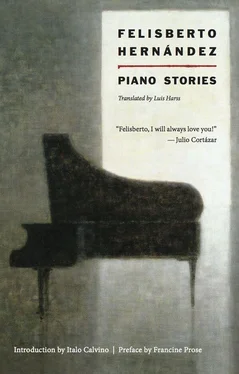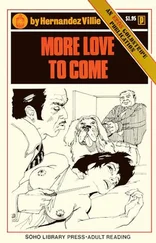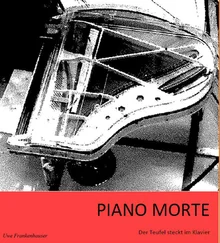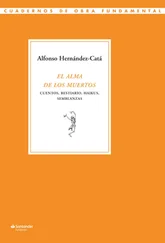Felisberto Hernandez - Piano Stories
Здесь есть возможность читать онлайн «Felisberto Hernandez - Piano Stories» весь текст электронной книги совершенно бесплатно (целиком полную версию без сокращений). В некоторых случаях можно слушать аудио, скачать через торрент в формате fb2 и присутствует краткое содержание. Год выпуска: 2014, Издательство: New Directions, Жанр: Современная проза, на английском языке. Описание произведения, (предисловие) а так же отзывы посетителей доступны на портале библиотеки ЛибКат.
- Название:Piano Stories
- Автор:
- Издательство:New Directions
- Жанр:
- Год:2014
- ISBN:нет данных
- Рейтинг книги:4 / 5. Голосов: 1
-
Избранное:Добавить в избранное
- Отзывы:
-
Ваша оценка:
- 80
- 1
- 2
- 3
- 4
- 5
Piano Stories: краткое содержание, описание и аннотация
Предлагаем к чтению аннотацию, описание, краткое содержание или предисловие (зависит от того, что написал сам автор книги «Piano Stories»). Если вы не нашли необходимую информацию о книге — напишите в комментариях, мы постараемся отыскать её.
Piano Stories
Piano Stories — читать онлайн бесплатно полную книгу (весь текст) целиком
Ниже представлен текст книги, разбитый по страницам. Система сохранения места последней прочитанной страницы, позволяет с удобством читать онлайн бесплатно книгу «Piano Stories», без необходимости каждый раз заново искать на чём Вы остановились. Поставьте закладку, и сможете в любой момент перейти на страницу, на которой закончили чтение.
Интервал:
Закладка:
In the showcase, the woman of the lake appeared seated at a dressing table on the edge of the water. She wore a frilly white robe embroidered with yellow leaves. On the dresser stood a number of vials of perfume and other objects. It was the moment in the story when the ladies arrived in their evening gowns. All sorts of faces enthralled by the scene went by outside the glass, looking the dolls up and down, and not only for their fashions. There were glinting eyes that jumped suspiciously from a skirt to a neckline, from one doll to the next, distrusting even the virtuous ones like the woman of the lake. Other wary eyes seemed to tiptoe over the dresses as if afraid of slipping and landing on bare flesh. A young girl bowed her head in Cinderella-like awe at the worldly splendors that she imagined went with the beautiful gowns. A man knit his brows and averted his eyes from his wife, hiding his urge to own a Daisy Doll. The dolls, in general, did not seem to care whether they were being dressed or undressed. They were like mad dreamers oblivious to everything but their poses.
The other section of the showcase was subdivided into two parts — a beach and a forest. The dolls on the beach wore bathing suits. Horace had stopped to observe two in a “conversational” pose: one with concentric circles drawn on her belly, like a shooting target (the circles were red), the other with fish painted on her shoulderblades. Carrying his small head stiffly, like another doll head, among the spectators, Horace moved on to the forest. The dolls in that scene were natives and half-naked. Instead of hair, some grew plants with small leaves from their heads, like vines that trailed down their backs; they had flowers or stripes on their dark skins, like cannibals. Others were painted all over with very bright human eyes. He took an immediate liking to a negress, who looked normal except for a cute little black face with red button lips painted on each breast. He went on circling the showcase until he located Frank and asked him:
“Which of the dolls in the forest are Daisies?”
“Why, dear boy, in that section they’re all Daisies.”
“I want the negress sent to the house by the park.”
“I’m sold out right now. It’ll take at least a week.”
In fact, no less than twenty days went by before Horace and the negress could meet in the house by the park. She was in bed, with the covers drawn up to her chin.
He found her less interesting than expected, and when he pulled back the covers she let out a fiendish cackle in his face. It was Mary, who proceeded to vent her spite on him with bitter words. She explained how she had learned of his latest escapade: it turned out his cleaning woman also worked for her cousin Prairie. Noticing his strange calm — he seemed distraught — she stopped short. But then, trying to hide her amazement, she asked:
“So now what do you have to say for yourself?”
He went on staring blankly, like a man sunk into a stupor after an exhaustion of years. Then he started to turn himself around with a funny little shuffle. Mary said, “Wait for me,” and got up to wash off the black paint in the bathroom. She was frightened and had started to cry and sneeze at the same time. When she got back he had vanished. But she found him at home, locked in a guest room, refusing to talk to anyone.
X
Mary kept asking Horace to forgive her for her latest surprise. But he remained as silent and unyielding as a wooden statue that neither represented a saint nor was able to grant anything. Most of the time he was shuttered in the guest room, almost motionless (they knew he was alive only because he kept emptying bottles of wine from France). Sometimes he went out for a while in the evening. When he returned he had a bite to eat and then lay flat on the bed again, with open eyes. Often Mary went in to look at him, late at night, and found him rigid as a doll, always with the same glassy stare. One night she was stunned to see the cat curled up next to him. She decided to call the doctor, who began giving him injections. He was terrified of the injections but seemed to take more of an interest in life. So, with the help of the boys who worked on the glass cases, she convinced him to let them set up a new show for him.
That night they had dinner in the dining room. He asked for the mustard and drank a considerable amount of wine from France. He took his coffee in the little parlor, then went straight into the show room. The first scene had no caption: among plants and soft lights, in a large rippling pool, he made out a number of loose arms and legs. He saw the sole of a foot stick out through some branches, like a face, followed by the entire leg, which reminded him of a beast in search of prey. As it glanced off the glass wall, it hesitated before veering in the opposite direction. Then came another leg, followed by a hand with its arm, slowly winding and unwinding around each other like bored animals in a cage. He stood there for a while, dreamily watching their different combinations, until there was a meeting of toes and fingers. Suddenly the leg began to straighten out in the commonplace gesture of standing on its foot. He was dismayed and flashed his light at Walter, as he moved the podium to the next scene. There he saw a doll on a bed, wearing a queen’s crown. Curled up next to her was Mary’s cat. This distressed him and he was angry at the boys for letting it in. At the foot of the bed were three nuns kneeling on prayer stools. The caption read, “The queen died giving alms. She had no time to confess, but her whole country is praying for her.” When he looked again, the cat was gone. But he had the uneasy feeling it would turn up again somewhere. He decided to enter the scene — gingerly, watching for the unpleasant surprise the cat was about to spring on him. Bending to peer into the queen’s face, he rested a hand on the foot of the bed. Almost at once, a hand belonging to one of the nuns settled on his. He must not have heard Mary’s voice pleading with him, because the minute he felt her hand he straightened up, stiff as death, stretching his neck and gasping like a captive bird trying to flap its wings and caw. Mary took hold of his arm, but he pulled away in terror and began turning himself around with a little shuffle, as he had done the day she had painted her face black and laughed in his face. She was rattled and frightened again and let out a scream. He tripped on a nun, knocking her over. Then, on his way out of the case, he missed the small door and walked into the glass wall. There he stood pounding on the glass with his hands, which were like birds beating against a closed window. Mary did not dare take hold of his arm again. She ran to call Alex, who was nowhere to be found. Finally he appeared, and, thinking she was a nun, asked politely what he could do for her. Crying, she said that Horace was mad. They went into the show room but could not find him. They were still looking for him when they heard his steps in the gravel of the garden. They saw him cut straight through the flowerbeds. And when they caught up with him, he was going toward the noise of the machines.
The Flooded House
The first thing I always remember from those days is rowing a boat round and round a small island of plants. The plants were changed frequently: they didn’t get along there. Miss Margaret sat facing the stern, with her huge back to me. If she gazed long and hard at the island she might let something out, although it was never what she had promised: she spoke only of the plants, as if hiding her other thoughts between them. I kept losing hope, tired of raising and dipping the oars like hands bored with counting always the same drops of water. But I knew my weariness was a bit of deceit mixed — as I would rediscover the next time around, and the one after that — with a little happiness. So I was resigned to waiting for the few words that would reach me from that massive world gliding backward with me, drawn by the effort of my aching arms.
Читать дальшеИнтервал:
Закладка:
Похожие книги на «Piano Stories»
Представляем Вашему вниманию похожие книги на «Piano Stories» списком для выбора. Мы отобрали схожую по названию и смыслу литературу в надежде предоставить читателям больше вариантов отыскать новые, интересные, ещё непрочитанные произведения.
Обсуждение, отзывы о книге «Piano Stories» и просто собственные мнения читателей. Оставьте ваши комментарии, напишите, что Вы думаете о произведении, его смысле или главных героях. Укажите что конкретно понравилось, а что нет, и почему Вы так считаете.












